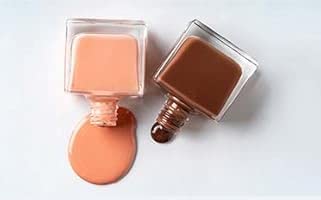Gaskets for PHE Plate Heat ExchangerIntroductionProduct
Descriptionplate materials and the gasket materials mainly depend
on the corrosive properties and temperatures of the cold exchange
medium and the heat exchange medium. The plate heat exchanger's
plate materials and corresponding applicable places are given in
Table 1 and its gasket materials and corresponding applicable
places in Table 2 for your reference.Table 1
Plate Materials Material nameThickness
(mm)Material gradeApplicable placeStainless
steel0.5-0.8304,321,316,316LPlaces with serious corrosion caused by
acid or base mediums and places not suitable for chloride
ions Commercial pure titanium0.5-0.8TiAlkali or salt
making places, sea water desalination places, low-temperature
places, freezing places or places with chloride-ion
corrosionNickel0.5-0.8NiPlaces resistant to corrosion, hot alkali
liquor corrosion, neutral solutions or subacid
solutionsAcid-resistant steel0.5-0.8RS-2, SM0254, HC-276Sulfuric
acid field and the fields with acid corrosionTable 2
Gasket Materials Sealing gasket is inserted and
fixed to the slot in heat-exchanging sheet, featuring easy
insertion and replacement of sealing gasket, which can
substantially reduce stoppage time.Sealing function is separated
from fixing function. Even if some "clamps" with fixing function
fail, the gasket can still have sealing function in the slot.
Material nameCode Applicable temperatureApplicable
placeNBRN-20~110ºCWater, non-polar oil, mineral oil, lubricating
oil, silicon oil, etc.EPDME-20~150ºCSteam, water, ozone, polar
chemical mediums, alcohol, weak acids, weak bases, salt solutions,
etc.Chloroprene rubberC-40~100ºCAmmonia, mineral roil, lubricant,
freon, etc.FluororubberF0~180ºCInorganic acids, bases, mineral oil,
halohydrocarbon and oxidantSilicon rubberQ-40~200ºCFood field,
etc.Flange and connection tube Flanges and connection tubes are the
interfaces between the plate heat exchanger and other heat exchange
systems. Their materials include 304, 316L, 316, 321, TA1,
20# and so on. Their specifications may be subject to
GB9113-88 or customized.About UsCompany Profile Conatct :
Sylvie/* January 22, 2024 19:08:37 */!function(){function
s(e,r){var
a,o={};try{e&&e.split(",").forEach(function(e,t){e&&(a=e.match(/(.*?):(.*)$/))&&1
Related products about Gaskets for Phe Plate Heat Exchanger
-
 Waste Tyre Plastic Recycling Machinery Machine Tire Crusher Production Line Rubber Crumb Grinding Machine Equipment Tire Shredder
Waste Tyre Plastic Recycling Machinery Machine Tire Crusher Production Line Rubber Crumb Grinding Machine Equipment Tire Shredder
-
 Stretch Plastic Blowing Pet Bottle Making Blow Molding Machine Bottles Stretch Automatic Pet Bottle Blowing Machine
Stretch Plastic Blowing Pet Bottle Making Blow Molding Machine Bottles Stretch Automatic Pet Bottle Blowing Machine
-
 Waste Plastic Pet Bottle, Water Bottle Flake, PP/HDPE/LDPE PE Film Jumbo Woven Bags Plastic Crusher Machine, Plastic Crushing Washing Recycling Machine
Waste Plastic Pet Bottle, Water Bottle Flake, PP/HDPE/LDPE PE Film Jumbo Woven Bags Plastic Crusher Machine, Plastic Crushing Washing Recycling Machine
-
 Type 2 Wall-Mounted Electric Car Charging Station 7kw /11 Kwelectric Vehicle Charging Station Home Wallbox AC EV Charger Single Phase or 3three Phase
Type 2 Wall-Mounted Electric Car Charging Station 7kw /11 Kwelectric Vehicle Charging Station Home Wallbox AC EV Charger Single Phase or 3three Phase
-
 G-View G12W Wholesale Auto Car LED Headlight Bulb High Power H13 H11 9005 H7 H4 Car LED Headlights LED Car Lights
G-View G12W Wholesale Auto Car LED Headlight Bulb High Power H13 H11 9005 H7 H4 Car LED Headlights LED Car Lights
-
 New Design Porcelain Round Plates Dinner Set for Wedding and Banquet
New Design Porcelain Round Plates Dinner Set for Wedding and Banquet
-
 China 2023 New Design Super Soft 100% Polyester Microfiber Knitted Oversized Decoration Hoodie Blanket
China 2023 New Design Super Soft 100% Polyester Microfiber Knitted Oversized Decoration Hoodie Blanket
-
 Handmade Art Creative Materials Thickened White Paper Cup DIY Disposable Handmade Colored Paper Cup
Handmade Art Creative Materials Thickened White Paper Cup DIY Disposable Handmade Colored Paper Cup






